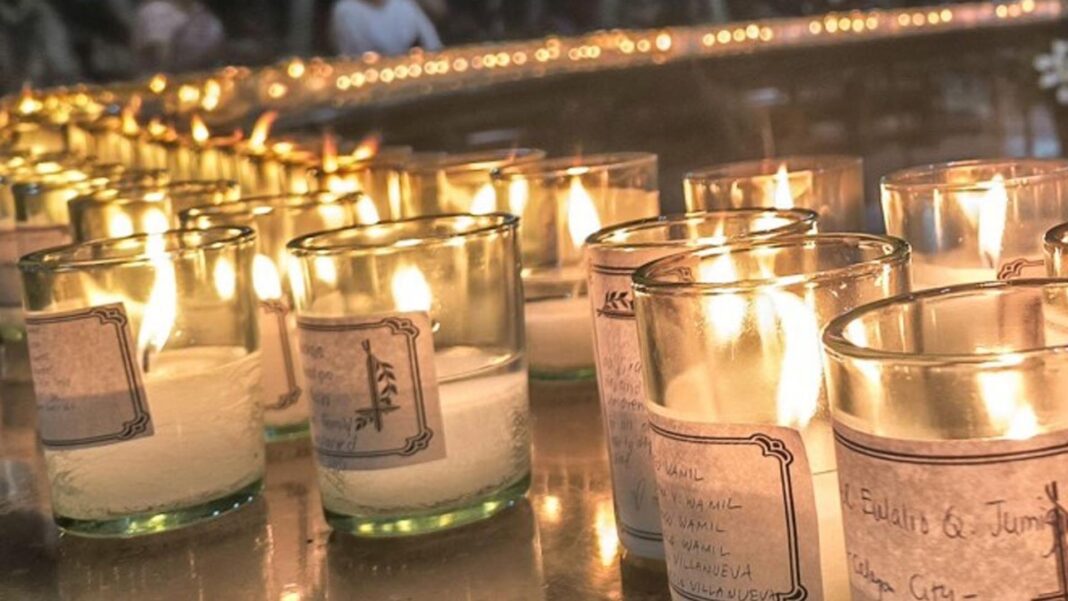Every year, as the first days of November draw near, cemeteries across the Philippines come alive with flickering candles, the scent of flowers, and a sea of reunited families.
All Saints’ and All Souls’ Days, celebrated every Nov. 1 and 2, are among the country’s most cherished occasions for remembering the departed.
For Christine Bernadette Marcelino and other Filipinos who now live thousands of miles away from home, distance proves no barrier to honoring their loved ones who have passed on.
Wherever they are, they continue to pay respects to their departed loved ones every Undas, often finding creative ways and maximizing the use of new technologies to celebrate the tradition despite the distance.
Virtual celebration
For Marcelino, who has been living in Canada for over a decade, Undas remains an emotional reminder of home.
“Even when living abroad, Filipinos never miss the chance to honor their departed loved ones every Undas, embracing modern ways to observe the tradition from afar,” Marcelino said. “My family offers mass intentions and prayers at home. We make video calls with our relatives who are visiting the cemetery back home. During the video call, we recall the good and funny memories we shared with our loved ones.”
She said Undas is not just a solemn occasion but also a family reunion — even now, though it is far different from what she and her family used to do when they were still in the Philippines.
“When I was a kid, I used to look forward to celebrating Undas and visiting my grandfather’s grave. We would go there the day before to clean and paint it,” she recalled.
“During Undas, everyone in our family would get up early in the morning to prepare the food, candles, and flowers. After that, we would head straight to the cemetery, and my father would start to build his tent. Throughout the day, we were just there eating our meals and reminiscing about our memories with my grandfather,” Marcelino added.
For Marcelino, Undas remains a deeply rooted tradition in Filipino culture — one that emphasizes family, respect, and remembrance.
Though it has been more than 13 years since her last Undas visit to her grandfather’s grave, Marcelino and her family continue to ensure the resting place is cared for.
“We ask the cemetery staff to clean and paint my grandfather’s grave. We also tell our relatives to bring flowers and light candles on his grave on our behalf,” she said.
Keeping the traditions alive
Amalia Clata, who hails from Kisolon Sumilao, Bukidnon but has been residing in Bulakan, Bulacan for the past 10 years, said she keeps the Undas traditions alive in her own way, since she lives far from her hometown.
From lighting candles beside a simple cross at home to joining online family prayers, Filipinos continue to find ways to connect the past with the present.
Clata sets up a small altar at home with photos of her departed loved ones every Undas, lighting candles and offering their favorite food, drinks, and personal belongings as a sign of respect and to feel their presence.
Video calls have also become a lifeline for connection, Clata said.
“Ang pagdiriwang namin ng Undas ay nagpapakita ng pagsasanib ng sinaunang kaugalian kung saan nananatiling buo ang diwa ng paggalang, pag-alala, at pagkakaisa ng pamilya. Malaking tulong ang teknolohiya o social media sa paraan ng pagdiriwang naming (Our celebration of Undas is a reflection of a continued tradition, where the spirit of respect, remembrance, and family unity remains strong. Technology and social media greatly help in the way we observe the occasion),” she said.
She fondly remembered how her family and relatives used to celebrate Undas — bringing suman, puto, biko, and home-cooked dishes to the cemetery for a shared meal.
“Hanggang ngayon, ginagawa pa rin nila ‘yun. Uso kasi sa probinsya (Until now, our relatives still do that back in the province),” she said. (PNA)


